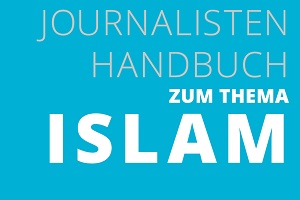Manuel for journalists on the issue of Islam
Terrorism, educational problems and suppression of women – these subjects are predominant when people talk about Islam and Muslims in Europe. The variety and normality of the everyday life of most of the Muslims thereby remain unseen. This paves the way for prejudices, threatening scenarios and xenophobia.
Journalists currently face the challenge of reporting balanced and fact-based about Islam while not blanking out problems and conflicts of integration. To deal with this challenge, the German webportal Mediendienst Integration published a handbook for Journalists on the topic of Islam. It offers practical help: What do we know about the Muslims living in Germany? What data exists on their numbers and religiosity and how reliable is this data? What do we know about these Muslim’s perception of democracy and minority groups? How do Muslim communities engage in refugee aid or nursing care?
The handbook aims at a differentiated covering of Muslim life in Germany by newly classifying well-discussed topics, explaining contents and offering new perspectives of reporting. It presents numbers, facts and basic knowledge in a nutshell and with references. However, it also offers backgrounds, coherencies and new perspectives for reporting.
The handbook emerged in cooperation with scientists and other experts. It was worked on for about 15 months. 22 authors, most of them scientists, were included in the project. It was sponsored by the German integration commissioner and deals with the following subjects (among others):
- How has Islamic life in Germany developed?
- What studies deal with the number of Muslims living in Germany?
- What are the different denominations of Islam and how are they represented in Germany?
- Where do Muslims live – and what is their social status?
- How do the different denominations organize themselves?
- What is the relation between Islam and terrorism?
- How common are anti-Muslim sentiments in Germany?
Dr. Jörn Thielmann, Managing Director of the Erlangen Centre for Islam and Law in Europe (EZIRE), has contributed to the journalistic handbook. In his contribution “Islam and Terrorism” (p. 143-148), he explains the most important terms on the topic of Jihad and deals with Islamist-extremist thought, terrorist actions, processes of radicalization and the example of the so-called “Islamic State” (IS).
